They have been strictly all-male environments for decades.
But now a clutch of clubs set up to celebrate the rich literary legacy of Robert Burns is embracing change – by inviting women on board.
Last year, Dundee Burns Club, which was established in 1860, and is one of the oldest in the world, created a new ‘associate membership’, which is open to women.
President Jimmy Black is keen to get more women involved – despite the fact some long-standing members feel strongly that they should not be allowed to join.
Renowned Dundee traditional singer Sheena Wellington was the first to sign up.
She sang her famous rendition of A Man’s A Man for A’ That a few times at the club last year, and she’s believed to be their first female singer.
“I’m delighted to be an associate member of the Dundee Burns Club,” says Sheena, 80.
“They’re a friendly bunch and their lovely venue is a great place for formal dinners and informal music sessions alike.”
How does Sheena feel about not being a ‘full’ Burns club member?
However, Sheena says she finds it a “bit odd”, that while she has honorary full memberships of a number of Burns Clubs across the globe, she can’t be a full member of her hometown club in Dundee.
“I’d be more than happy to pay the full subscription!” she adds.
As a Burns lover, Sheena says she has watched clubs gradually becoming more open to women and today, “99%” of them happily get along with a mixed membership.
It was more than 20 years ago that she became the first woman to give the Immortal Memory at Greenock Burns Club, which claims the title of the ‘Mother Club’.
“That club and many others have thrived with women going from being occasional guests or food servers to being valued committee members, chairing meetings, organising events and buying a round at the bar,” says Sheena.
What can women do as associate members?
Leading figures on the Burns circuit say while female inclusion has improved, there is still a long way to go to change entrenched attitudes.
“We want to involve more people in the club, but full membership is £65 and involves a fair bit of commitment,” explains Jimmy, who is an SNP councillor.
“So we created a new category of associate membership which costs only £25. Three of the 15 or so associates are women.”
Associate members receive the club’s newsletter and can request to use the club for meetings.
Women attend the club’s annual Mixed Burns Supper, the quarterly Sunday folk music events, its St Andrews Night, and any of its local history and literature events.
But members’ meetings and the traditional all-male Burns supper are a no-go.
“The club constitution says that only ‘gentlemen’ can be full members,” explains Jimmy.
“We require a 75% majority of full members to change that, and we put membership for women to the vote at the AGM in 2023.
“Unfortunately we missed the 75% majority by one vote. I plan to try again this year, either at a special general meeting or at the AGM in October.”
What restrictions do women in Burns clubs face?
Alas, associate members – which now include women – cannot vote or be part of the club’s committee.
And, as Jimmy laments, there are many women academics who are Burns experts but would not be allowed to to join under current rules.
“Cutting out half the human race makes no sense to me; I doubt if it would make sense to Burns,” he argues.
“Personally I think if a woman applied to join as a full member, and we refused on the ground of her sex, we would be on very dodgy ground.
“Having said that, if some men in the club want to run all-male events, I have no issue with that.
“Some women might want all female events, and that would be fine too.”
Keen to see club enter 21st Century
Jimmy, who asked Sheena to join, said the singer has been a “great support” and is keen, as he is, to see the club “enter the 21st Century”.
But there are still a few long-standing members who feel “strongly” that women should not be allowed to join, he reveals.
“Clearly I don’t agree with them,” he adds.
Jimmy, who says it’s an honour to be president of the Dundee Burns Club, believes Burns Night should always be celebrated “because it concentrates the attention of the world on Scotland’s unique contribution to international culture.”
Jacqueline McGregor – wife of the club’s current curator and former president Lindsay McGregor – recently joined as an associate member.
“I’ve helped the club with Burns Suppers for a good few years, and I’m really pleased to see it including women in more events,” she says.
“Burns belongs to everyone, and it’s good that the club is reaching out to more people, helping to keep Burns’ beautiful songs and poems alive.”
Women integral to Perth club
Donald Paton, honorary life president of Perth Burns Club, says “ladies” are very much an integral part of the club.
“This year broadcaster Lesley Riddoch will be the principal speaker and propose the Immortal Memory at the club’s annual dinner in the Salutation Hotel,” he says.
“This will be the third occasion of a lady proposing the main toast at the annual dinner – the others being Fiona Hyslop MSP and Dr Kirsteen McCue, the well-known Burns scholar.”
Perth Burns Club was formed in 1873 as a “gentlemen’s literary society”, explains Donald.
“The club’s annual Burns Nights were originally all-male but in the 1930s ladies were allowed to attend the annual dinners although it was still basically an all-male club.
“The club went into abeyance at the start of the Second World War and was not re-formed until 1977, mainly through the efforts of my father, Donald M. Paton, and the late John Kidd of the Kinross Jolly Beggars Burns Club.
“Both were adamant that the Perth club had to be reformed as a mixed club and it was the correct decision.
“We are a club that meets regularly throughout the year and this would not have happened if we had been all-male.”
First female speaker in 131 years
Women had been excluded from the strictly all-male Arbroath Burns Club since it began life in 1888.
But the club embraced change in 2019, and invited Dr Karen McGavock to be the first female speaker in its 131-year history.
Kirriemuir native, Dr McGavock, is a lecturer in English and Communication at North East Scotland College in Aberdeen.
“It was a real honour to be asked to be the first woman to be invited to speak at the Arbroath Burns Club,” she says.
“Although Burns clubs were originally established for men, in memory of our national bard, Burns himself was a great admirer of women and a supporter of their rights.
“So I’m sure he would have celebrated these developments towards equality and inclusion.”
What about the Jolly Beggars?
Some members of the Kinross Jolly Beggars are pushing towards modernising by opening up membership to women – and are in the process of consulting on the matter.
The club’s secretary, Grant Simpson, says a new verse, which includes as its final line: “It’s time we let the lassies jine the Jolly Beggars Club”, is being put to members.
“While the club has no formal constitution, membership has always been a male affair,” he says.
“However, in recent times, some members have questioned this aspect of our tradition.
“As many other traditional, historic organisations are doing, we are undertaking a consultation on modernising the club and opening membership to women.
“Responses are being considered and we anticipate advising the membership of the result shortly.”
Katie piping in the haggis
Award-winning Carnoustie bagpiper Katie Robertson, known as the Wheeled Piper, is among the musicians starring in BBC Scotland’s Burns Night on January 25.
Her role? Piping in the haggis.
Katie, 18, lives with scoliosis, arthritis and chronic pain, leaving her reliant on a wheelchair.
“As a disabled female piper, it gives me a great sense of pride to see my culture being appreciated in a way that’s not just accepting or inclusive for the sake of it, but encouraging of all Scottish, diverse talent,” she says.
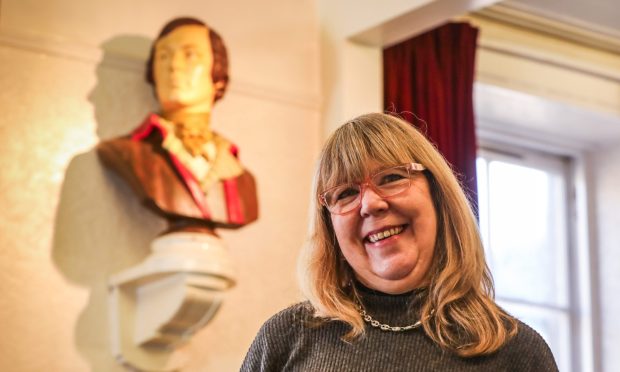
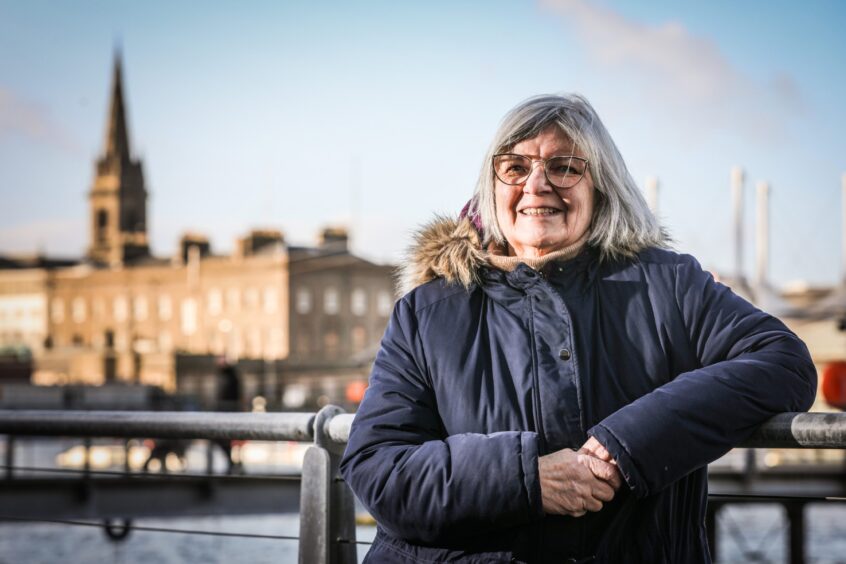
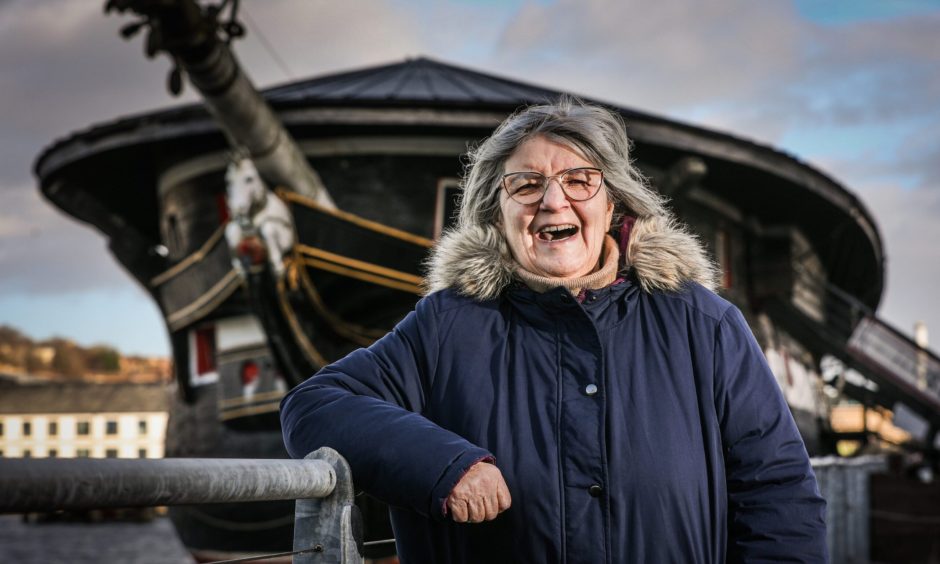
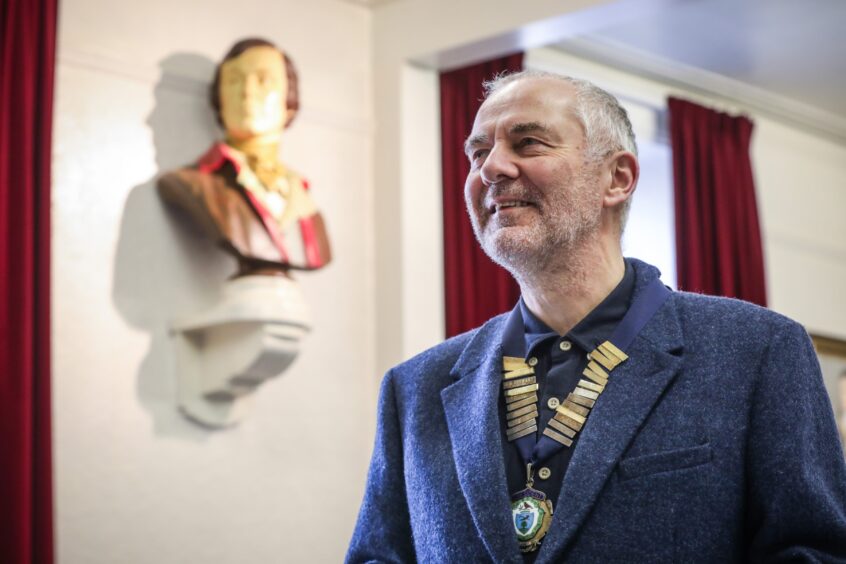
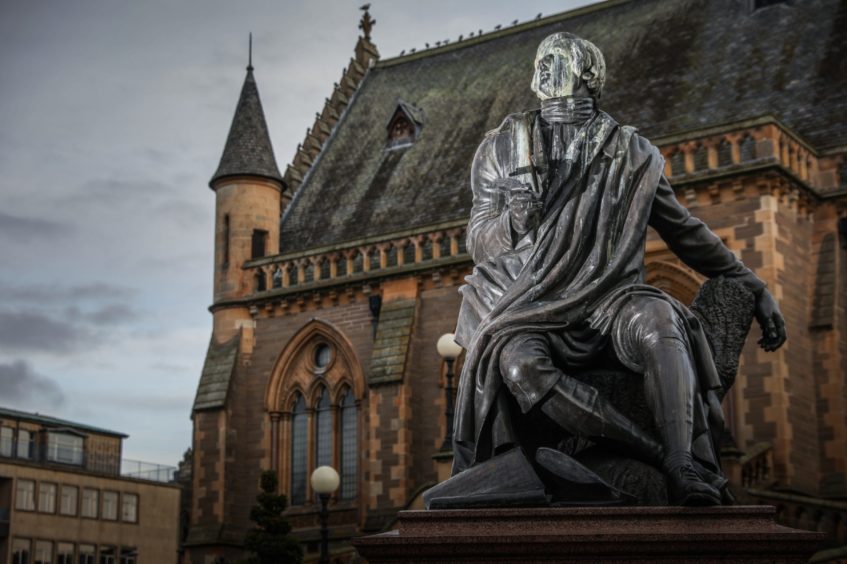
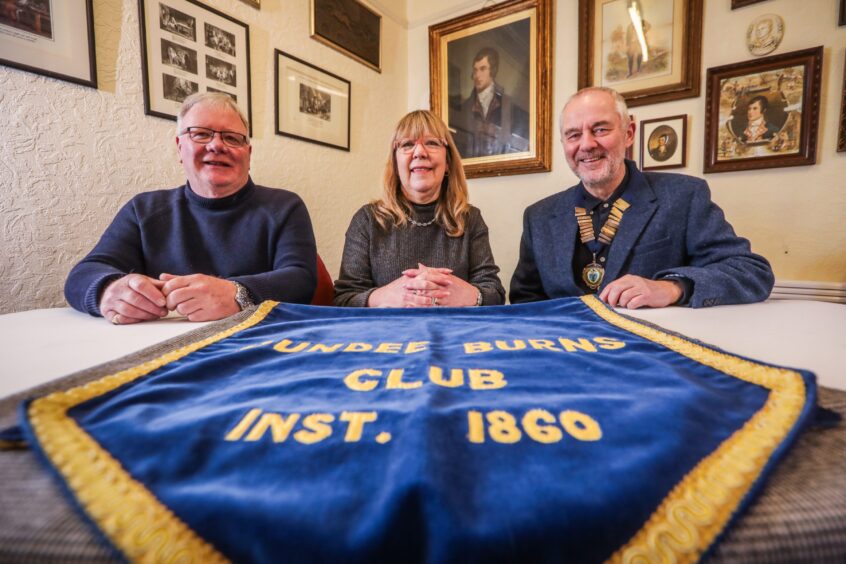
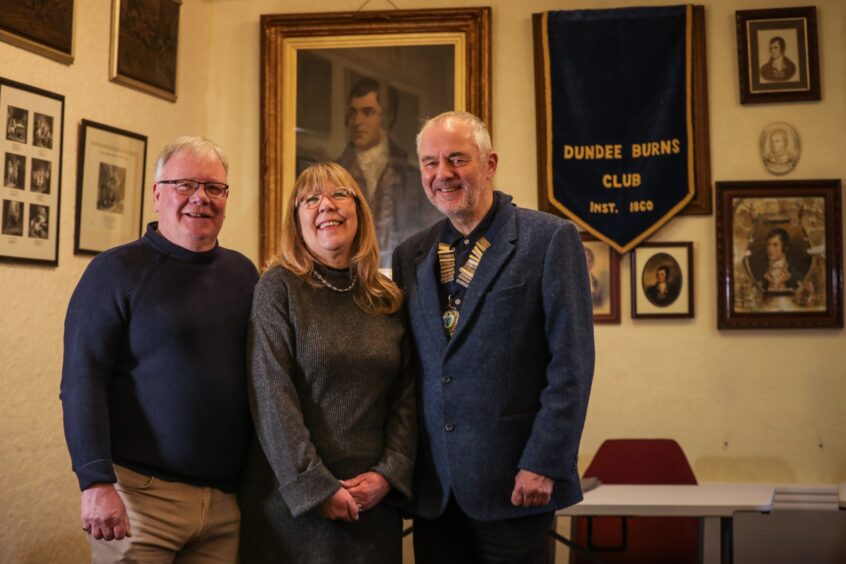
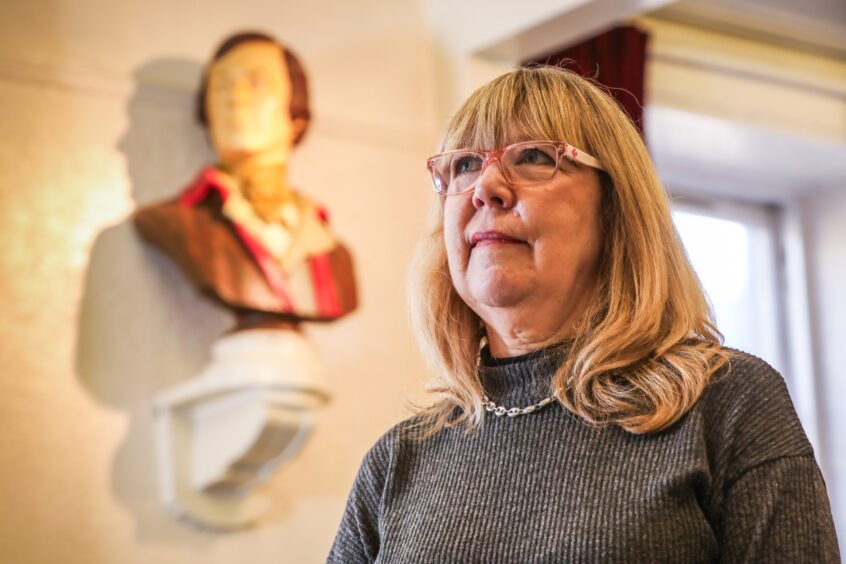
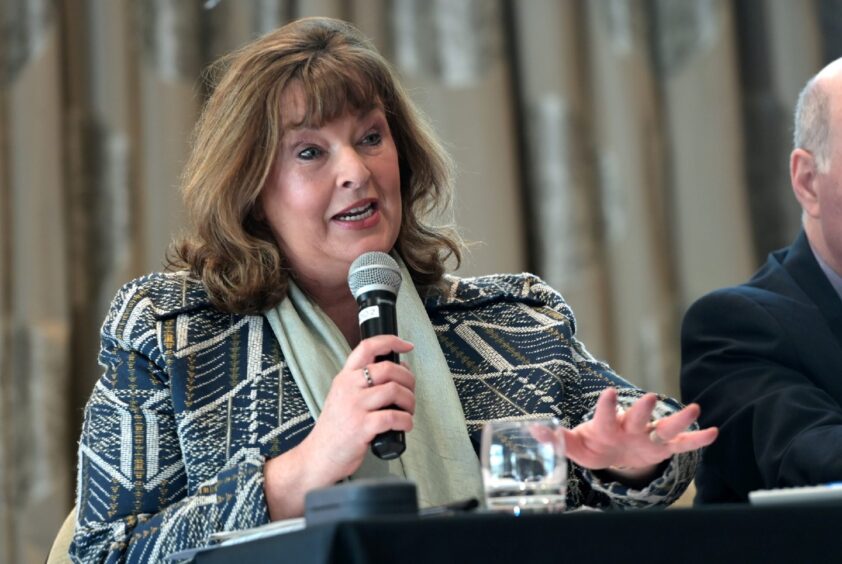
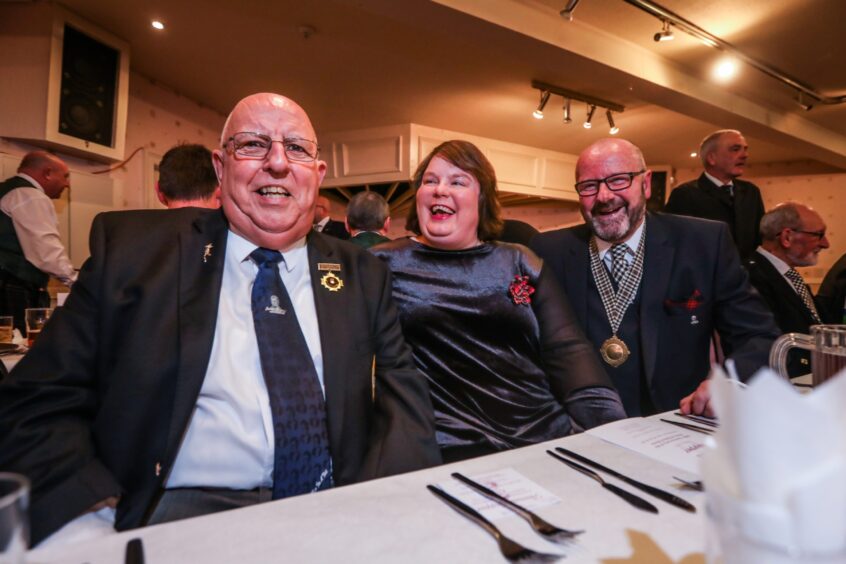
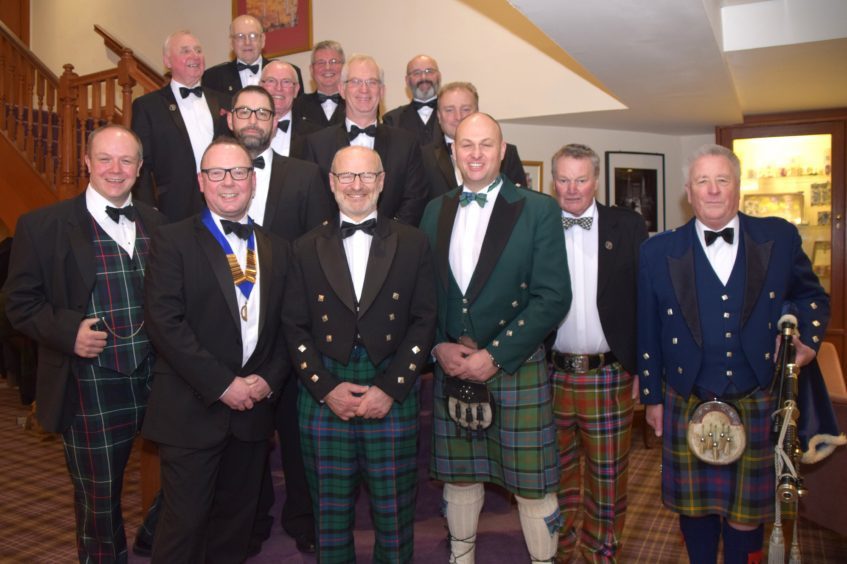
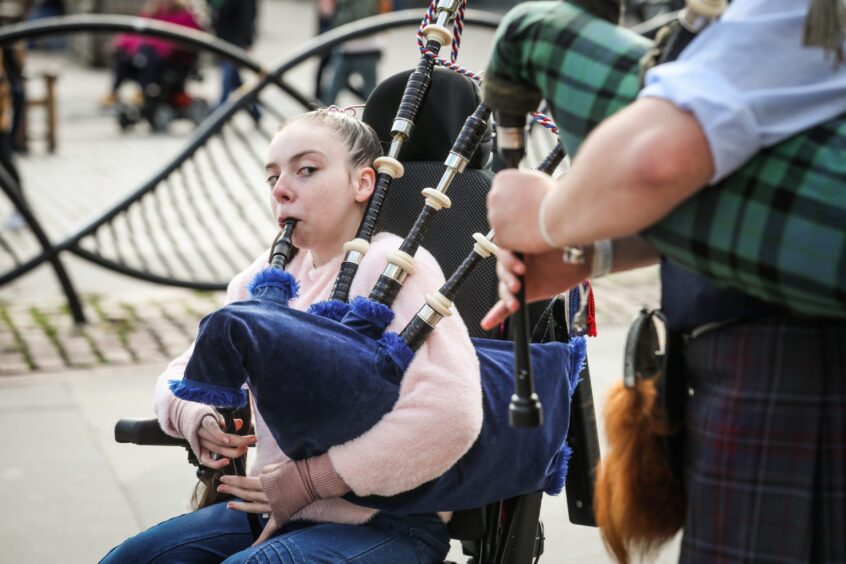
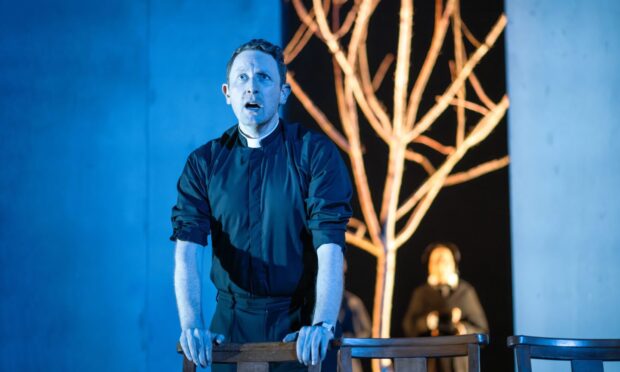
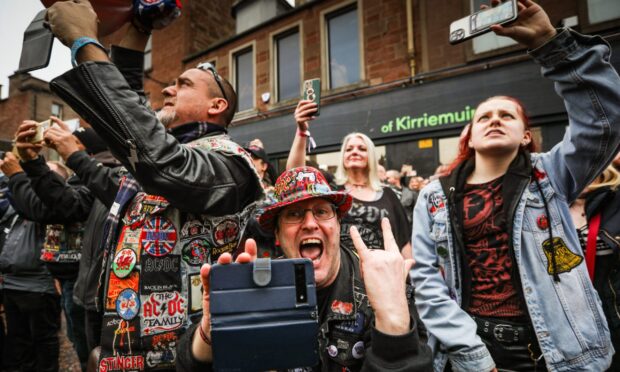

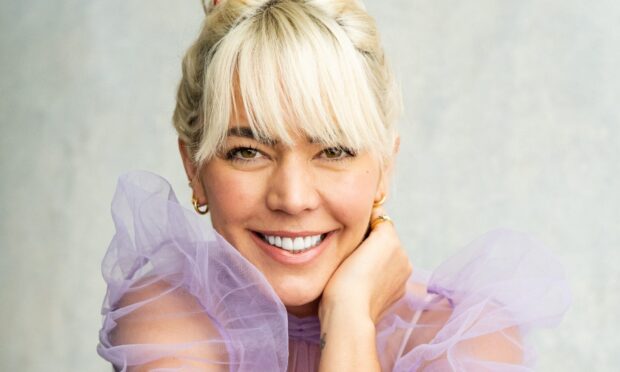
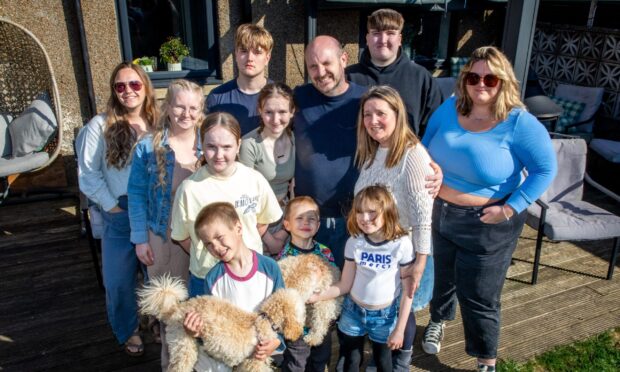
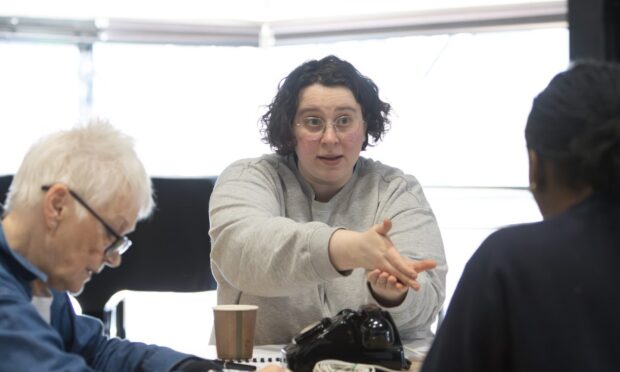

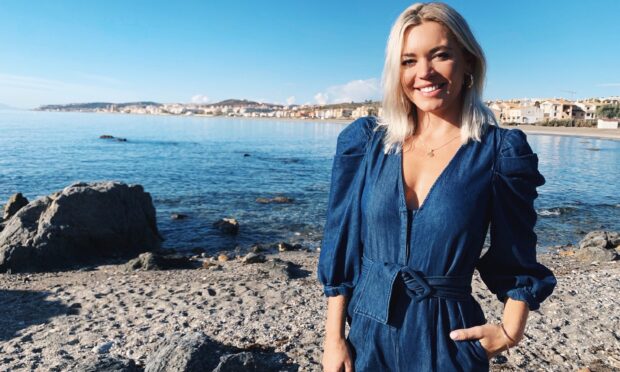
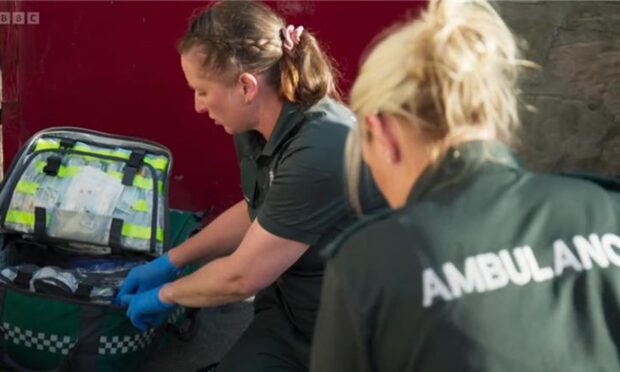
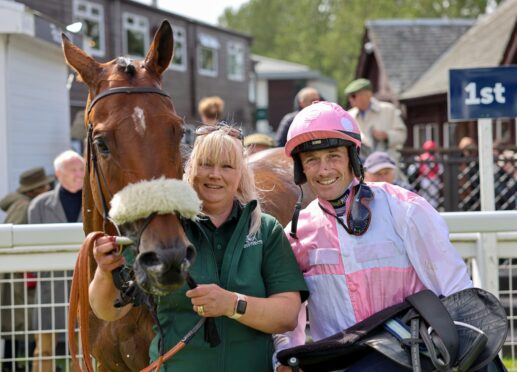
Conversation